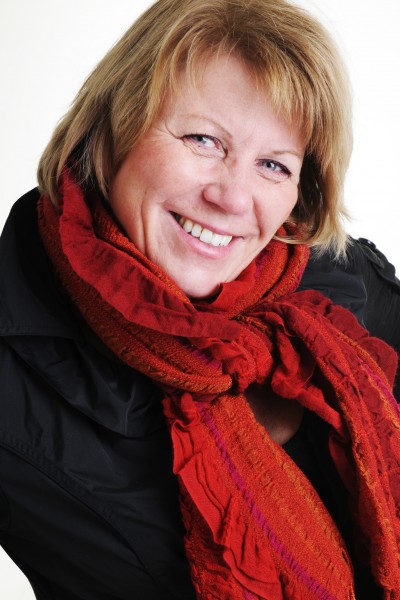Save the Children’s annual international report on mothers and their children, State of the World’s Mothers, has once again named Norway as the best country in the world in which to be a mother. Nonetheless, within Norway, new statistics show that child poverty has increased over the past decade.

Tove R Wang, the general secretary of Save the Children Norway, welcomed the "fantastic news" for Norwegians. At the same time, debate rages in Norway on child poverty. PHOTO: FameFotografene/Redd Barna
164 countries are included in the study. Australia and Iceland came joint-second behind Norway, with the rest of the top 10 made up of western European countries and New Zealand.
Norway comes out on top
A number of variables are used in compiling the indices used in the rankings, with governments, international organizations and research groups used as sources. These variables include the risk of death during birth, the number of women that use modern contraceptive techniques, the number of births completed with educated health personnel present, literacy rates, women’s representation in government, and infant mortality.
A number of variables are used in compiling the indices used in the rankings, with governments, international organizations and research groups used as sources. These variables include the risk of death during birth, the number of women that use modern contraceptive techniques, the number of births completed with educated health personnel present, literacy rates, women’s representation in government, and infant mortality.
The report document itself says that Norway’s top ranking is due to the fact that the country “generally performed as well as or better than other countries in the rankings on all indicators.” The report goes on to say that Norway “has the highest ratio of female-to-male earned income, the highest contraceptive prevalence rate, one of the lowest under-5 mortality rates and one of the most generous maternity leave policies in the developed world.” The general secretary of the Save the Children Norway, Tove R Wang, added in a press statement that the results represent “fantastic news for Norwegian mothers,” although added that the most important thing was that “the poorest countries should receive most attention” in order to improve “access to health services.”
Women in Norway have a life expectancy of 83 years, compared to just 45 in Afghanistan, which came bottom of the table. Afghanistan’s women on average have less than five years in school, whereas Norwegian women have an average of 18. Only one in 333 children die before reacting the age of five in Norway, with the figure being one in five in Afghanistan. One estimate suggests that it is at least 200 times more likely that a women dies in birth than from a bombing in the war-torn nation.
85,000 children in poverty
Within Norway itself, a debate rages on a number of areas of family policy. Figures released in the last week suggest 85,000 children, 10 percent of those in the country, grow up in poverty. This has increased from 6 percent 10 years ago, with growth sharpest in the poorer, more ethnically diverse east side of Oslo, where many new immigrant families have not been able to access the labour market. Further statistics have shown that an average Norwegian family has lost NOK 10,000 (nearly USD 1,900) in purchasing power per year since 1996 because the state family welfare allowance had not been adjusted to take into account inflation and price changes. This real terms reduction is thought to have contributed to child poverty.
Within Norway itself, a debate rages on a number of areas of family policy. Figures released in the last week suggest 85,000 children, 10 percent of those in the country, grow up in poverty. This has increased from 6 percent 10 years ago, with growth sharpest in the poorer, more ethnically diverse east side of Oslo, where many new immigrant families have not been able to access the labour market. Further statistics have shown that an average Norwegian family has lost NOK 10,000 (nearly USD 1,900) in purchasing power per year since 1996 because the state family welfare allowance had not been adjusted to take into account inflation and price changes. This real terms reduction is thought to have contributed to child poverty.
Opposition parties were very critical of the news. Solveig Horne, a Progress Party representative on parliament’s family committee, described the lack of an increase in the welfare payments as “a disgrace” in newspaper Dagsavisen and criticized the current government for not doing enough. A local Labour Party candidate in Oslo, Nasir Ahmed, agreed that the payment should be increased, but suggested that other areas of the Progress Party’s policies, which generally favour low taxes and low government spending, were a bigger hindrance to tackling child poverty. “Poor families and many immigrant families are dependent on good social services to manage,” Ahmed said.
Oslo’s east-west divide
In Oslo, the Labour Party and Socialist Left Party candidates for city council leader in the upcoming local elections, Libe Rieber-Mohn and Marianne Borgen, put the blame for the capital’s division at the feet of the Conservative Party-Progress Party coalition currently running the city. “People would notice a difference if we took over,” Rieber-Mohn commented to Dagsavisen.
In Oslo, the Labour Party and Socialist Left Party candidates for city council leader in the upcoming local elections, Libe Rieber-Mohn and Marianne Borgen, put the blame for the capital’s division at the feet of the Conservative Party-Progress Party coalition currently running the city. “People would notice a difference if we took over,” Rieber-Mohn commented to Dagsavisen.
The Progress Party’s Mazyar Keshvari rejected this criticism, claiming that “children of non-western parents” were the source of the problem. Keshvari said that “massive non-western immigration” had meant that “the integration of certain groups has been difficult” in terms of language and work, and that Labour and the Socialist Left Party were “the main architects” of this.

No comments:
Post a Comment